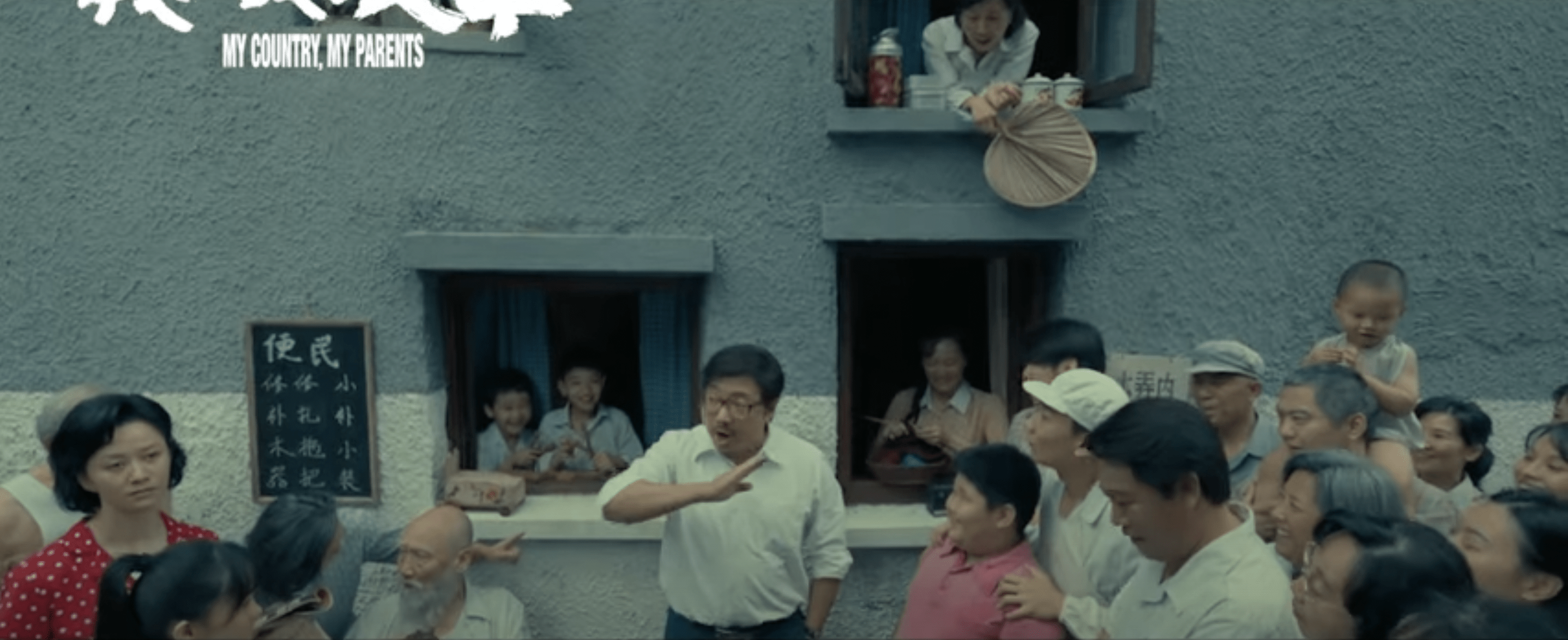A SURPRISE HIT movie in China tells the true story of the first man who decided to try making a TV advertisement in that country, more than 40 years ago. It may sound like a trivial thing, but in another way it was huge – his success or failure would signify the transition of China from a completely advertisement-free communist society to one exploring the adoption of the best aspects of capitalism.
The story, “Duck prophet”, is part of a four-element movie called My Country, My Parents, consisting of short stories with a theme of parents and children.
The other tales, a war story, a love story, and one with a sci-fi theme, may seem more attention-grabbing. But it was the story of the humble entrepreneur who made a TV advertisement that has caught everyone’s attention – and helped the movie become one of the blockbuster films of 2021 in China.
What was the magic?

First, consider the period in Chinese history. The late 1970s was the time when leader Deng Xiaoping was gently opening up the country to interact with the outside world – a process that had to be done very carefully, given the history of harm done to the people by earlier foreign incursions, including the opium-selling Europeans, and the famously violent Japanese invasion.
The 1960s had seen huge upheavals. But now, in 1978 and 1979, there was a feeling of excitement in the air and the movie captured that atmosphere.
Second, there was the story itself. A Shanghai man named Ye Songhu (葉松虎) decided to shoot a TV commercial to sell his company’s medicinal wine – to the dismay of everyone surrounding him. Although his neighborhood knew he was a bit of a maverick, this decision still astonished them: TV commercials had not appeared on screens for many years, nor was there a single advertisement allowed in newspapers.
Mr Ye was a manager in a company which made Ginseng Longan Wine. Despite believing in the high quality of the product, his efforts at sales had produced poor results. The warehouse was filled with unsold stock – and so were the offices of the company. He had to do something to get the bottles moving. If China was returning to some of the old ways, perhaps allowing the advertising of a good product would be a good first step?

Mr Ye had a catchphrase from an ancient Song Dynasty poem, which said that when you wanted to know when winter was turning to spring, the duck was your prophet – watch for when the bird enters the water, and you would know that a change was coming. Mr Ye and his commercial were the duck, jumping into the water to show that the first wave of capitalism would soon sweep the land.
He found people who could make movies and bargained with them to lower their charges. To further save money, he used company staff as actors.

The film was very simple and classically Chinese, focusing on an event that showcased the product and multi-generational filial bonding. It showed an image of a man taking his wife and son to a store and buying a bottle of Ginseng Longan Wine for his father. Then the old man sips the wine, and smiles. That was it. Star Wars it wasn’t.

On January 28, 1979, the first day of the first lunar month, at 5:05 p.m., Shanghai TV broadcast the epoch-making event: China’s first TV commercial. The actual film has not survived, but storyboard sketches are below.

The tiny story was broadcast, and then a slide came onto the screen with a revolutionary sentence: “Shanghai TV accepts advertising business from now on.”

The commercial was a huge success, despite the fact that relatively few people owned televisions. The ones who did raced out to buy the wine and the entire stock sold out.
This is despite the fact that it cost 15 to 16 rmb per bottle—about a quarter of a month’s salary for an worker with an undergraduate diploma in Shanghai.
The opening up continued, and Chinese seniors began to pay more attention to health, especially in first-tier cities like Shanghai. The traditional recipe of the wine with real ingredients catered to their tastes.
Now, four decades later, the scale of China’s advertising market exceeds 700 billion rmb, and includes a huge variety of advertisements from newspapers ads to high-budget films to viral internet ads.
And the whole modern Chinese advertising industry came from a seller of medicinal wine who decided to be the first duck to jump into the water.
This document includes information from the linked source: https://mp.weixin.qq.com/s/NWGAv4mVeQNCinzAaFpNlA
Images copyright Golden Village Pictures
